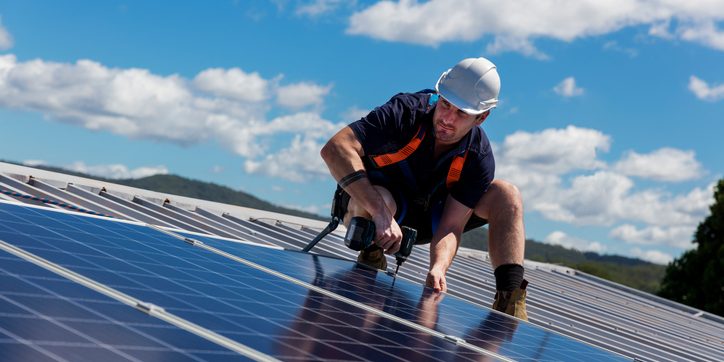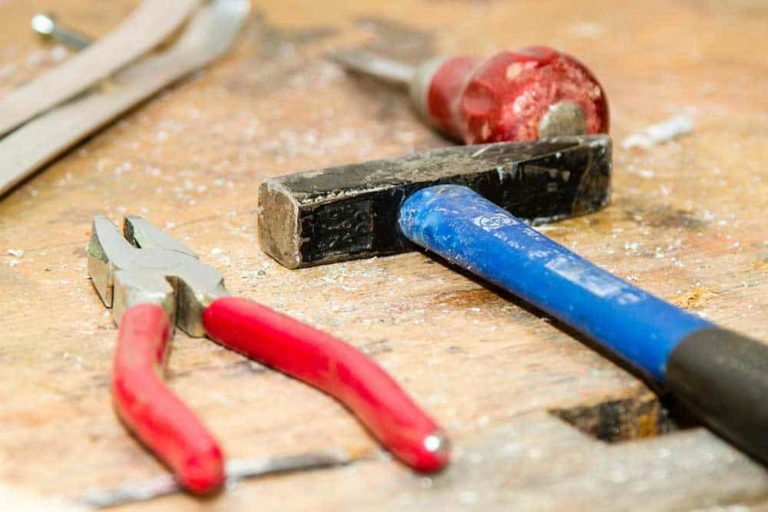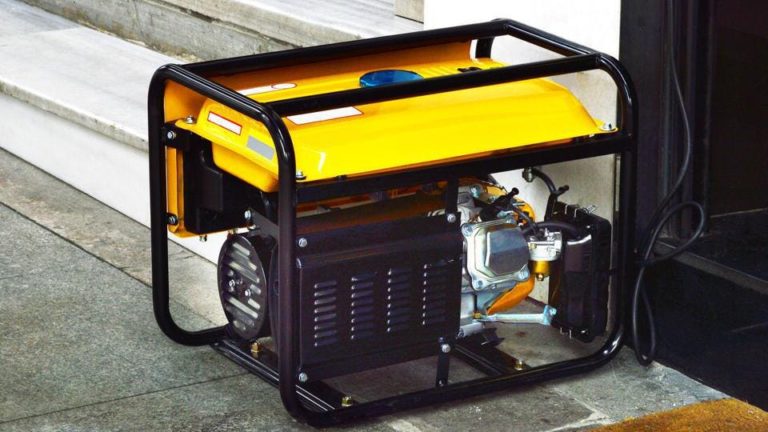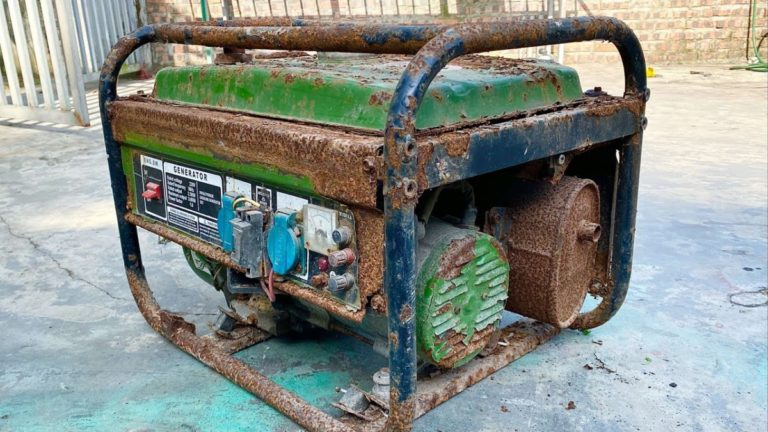Going off the grid with solar power is a thrilling venture that has become increasingly accessible and desirable in recent years.
As more households investigate alternative renewable energy sources, they seek knowledge on navigating the complex process of installing off-grid solar projects effectively, efficiently, and safely without jeopardizing quality and long-term efficiency.
This guide will provide actionable advice for homeowners embarking on a DIY project or partnering with experienced installers to ensure their dreams become reality while minimizing potential hazards from equipment malfunctions, environmental factors, and installation blunders that could prove costly over time if not planned carefully.
Homeowners will gain valuable insights into working productively with solar contractors and installers who are versed in local regulations regarding energy requirements for remote living situations like cabin owners far from the main electrical grid requiring independent power sources through off-grid designs leveraging battery storage banks capable of storing generated surplus wattage throughout daylight hours harnessing maximum output capacity from their array setup thereby extending system lifespan by minimizing load on components under varying environmental conditions.
With these key considerations in mind, you can plan ahead confidently for a secure and successful transition to green energy independence – an increasingly obtainable feat due to rapidly advancing technology trends shaping our future today!
Define Your System Requirements
Start by identifying your power needs and the specific system requirements for your off-grid solar project. This includes determining the size and number of solar panels, the battery bank capacity, and the inverter type and size.
This involves determining the size and number of solar panels, the battery bank capacity, and the inverter type and size.
To begin, you must assess your energy consumption patterns and determine the daily kilowatt-hour (kWh) usage for your home or business.
This will help you determine the appropriate size of your solar panel array and battery bank.
For instance, if you consume 500 kWh of energy per month, you will need a larger solar panel array and battery bank to meet your energy needs.
Next, you must consider the specific system requirements for your off-grid solar project.
This includes selecting the appropriate type and size of inverter, which converts the DC power from your solar panels to AC power for use in your home or business.
The size of your inverter will depend on the size of your solar panel array and your energy consumption patterns.
You will need to select a high-quality battery bank that can provide a sufficient amount of stored energy to meet your power needs during periods of low sunlight.
By carefully determining your power needs and the specific system requirements for your off-grid solar project, you can ensure that your system is properly sized and configured to meet your energy needs, providing a reliable and efficient source of clean solar power for years to come.
Research and Interview Contractors
Research local solar contractors and installers to find the best fit for your project. Ask for referrals and check online reviews to ensure the contractor has a good reputation and track record of successful projects. Interview at least three contractors to compare their qualifications, pricing, and project approach.
When searching for a reliable and skilled solar contractor for your project, it is essential to conduct thorough research and due diligence.
Begin by asking for referrals from friends, family, or neighbors who have previously installed solar panels.
This can provide valuable insights into the contractor’s reputation, quality of work, and customer service.
Check online reviews on platforms such as Google, Yelp, or Angie’s List to gauge the contractor’s credibility and level of satisfaction from past clients.
Once you have identified a few promising contractors, schedule interviews with at least three of them to compare their qualifications, pricing, and project approach.
During these interviews, ask questions about their experience in the solar industry, the types of solar panel systems they offer, and their approach to project management and customer service.
It is also essential to request references from previous clients and ask about their experience working with the contractor.
By taking these steps, you can ensure that you are hiring a reputable and skilled solar contractor who can provide you with a high-quality system that meets your energy needs and budget requirements.
Remember to always prioritize a contractor’s reputation, pricing, and project approach when making your decision, as these factors can significantly impact the success of your solar installation project.
Check for Proper Licenses and Certifications
Verify that the contractor has the proper licenses and certifications to work on your project. This may include a general contractor’s license, electrical contractor’s license, and/or NABCEP certification (North American Board of Certified Energy Practitioners).
Before you hire a contractor for your project, it’s essential to verify that they have the proper licenses and certifications to work on your project.
This includes a general contractor’s license, which permits the contractor to perform construction work, and an electrical contractor’s license, which allows them to work on electrical systems.
It’s important to ensure that the contractor has NABCEP certification (North American Board of Certified Energy Practitioners).
NABCEP certification demonstrates that the contractor has received the training and has the necessary skills to design and install solar panel systems, which are becoming increasingly popular in the construction industry.
These licenses and certifications ensure that your project is completed correctly and meet the safety and quality standards.
Therefore, it’s critical to confirm the contractor’s qualifications before hiring them for your project.
Obtain Multiple Quotes
Get quotes from at least three contractors to compare their pricing and project approach. Make sure the quotes include all necessary components and installation costs, as well as any additional expenses such as permits, inspections, and system monitoring.
To ensure that you get the best value for your money and avoid any potential pitfalls, it is important to obtain quotes from at least three contractors.
By comparing their pricing and project approach, you can identify the most qualified and affordable option for your solar panel installation project.
Make sure the quotes include all necessary components, such as the solar panels themselves, inverters, mounting hardware, and installation costs.
Be aware of any additional expenses, such as permits, inspections, and system monitoring, which may be necessary for a successful installation.
By taking the time to gather and compare quotes from multiple contractors, you can feel confident that you are making an informed decision that aligns with your budget and solar energy goals.
Review System Design and Installation Plans
Review the contractor’s system design and installation plans to ensure they meet your system requirements and local building codes. Verify that the contractor is using high-quality, name-brand components and materials.
Before hiring a contractor to design and install your home automation system, it is essential to review their system design and installation plans to ensure they meet your specific system requirements and local building codes.
This includes verifying that the contractor has taken into account your desired features, functionality, and integration with other systems in your home.
You should check that the contractor is using high-quality, name-brand components and materials, such as sensors, actuators, and communication protocols, that are widely recognized for their reliability, performance, and compatibility with other systems.
By doing so, you can be confident that your system will function as intended, meet local building codes, and provide you with the desired level of convenience, energy efficiency, and home security.
Confirm Warranty and Maintenance Coverage
Confirm the warranty and maintenance coverage for the solar system and its components. A reputable contractor should offer a comprehensive warranty and maintenance program to protect your investment.
When investing in a solar system, it is important to confirm the warranty and maintenance coverage for the solar system and its components.
A reputable contractor should offer a comprehensive warranty and maintenance program to protect your investment and ensure your solar system runs at its optimal performance.
This includes coverage for the solar panels, inverters, and other components, as well as regular maintenance and inspection services to detect and address any issues before they become major problems.
A good warranty and maintenance program should also offer a specified duration, clear terms and conditions, and easily accessible customer support.
By choosing a contractor that offers a comprehensive warranty and maintenance program, you can have peace of mind knowing that your solar system is protected and will continue to provide you with clean, renewable energy for years to come.
Verify Financing and Incentives
Verify the financing options and incentives available for your project. This may include government incentives, rebates, and financing programs. A reputable contractor should be knowledgeable about these incentives and help you navigate the process.
When it comes to financing your home improvement project, it’s essential to verify the financing options and incentives available to you.
Government incentives, rebates, and financing programs can help make your project more affordable and reduce your overall costs.
A reputable contractor should be knowledgeable about these incentives and help you navigate the process.
To start, you should research the various financing options that are available to you.
This may include government-backed loans, such as FHA or VA loans, as well as private financing options like home equity loans or lines of credit.
You should also investigate any available rebates or incentives, such as energy-efficient appliance rebates or green building incentives.
A reputable contractor can help you explore these options and determine which ones are the best fit for your project.
They should be familiar with the process and requirements for each financing option and be able to guide you through the application process.
They should be able to provide information on any special financing programs or incentives that may be available for your specific project, such as low-interest loans or tax credits.
Verifying financing options and incentives can help you make the most of your home improvement project.
By exploring all the available financing options and incentives, you can reduce your costs and make your project more affordable.
With the help of a reputable contractor, you can ensure that you are taking advantage of all the financing options and incentives that are available to you.
Check for Licenses and Certifications
Ensure that the contractor is properly licensed and certified to perform the work in your state and local jurisdiction. look for certifications from professional organizations such as the North American Board of Certified Energy Practitioners (NABCEP).
When hiring a solar panel installer, it is important to ensure that the contractor is properly licensed and certified to perform the work in your state and local jurisdiction.
This not only guarantees that the work is done to the highest standards, but it also provides you with legal protection and peace of mind.
Look for certifications from professional organizations such as the North American Board of Certified Energy Practitioners (NABCEP).
NABCEP is a well-respected certification body that sets industry standards for solar panel installation, and its certifications are recognized by most state and local governments.
Check if the contractor has liability insurance and workers’ compensation insurance to protect you and their workers in case of accidents.
By doing your due diligence and verifying the contractor’s licenses and certifications, you can rest assured that your solar panel installation is in good hands.
Want More? Dive Deeper Here!
Hey there! If you’re the type who loves going down the rabbit hole of information (like we do), you’re in the right spot. We’ve pulled together some cool reads and resources that dive a bit deeper into the stuff we chat about on our site. Whether you’re just killing time or super into the topic, these picks might just be what you’re looking for. Happy reading!






